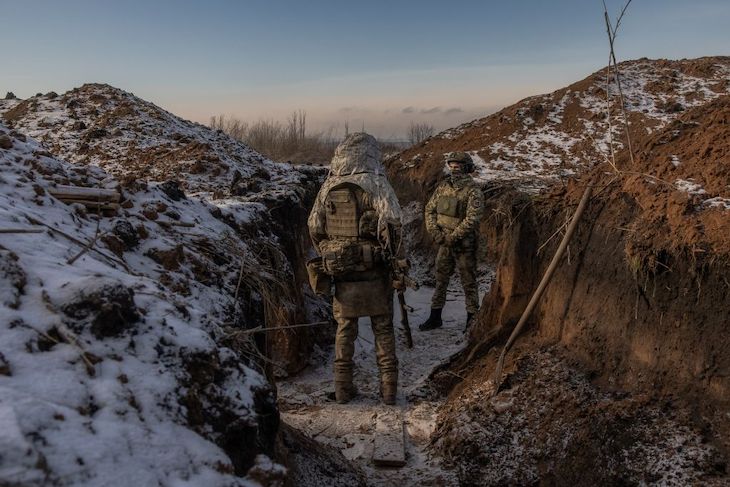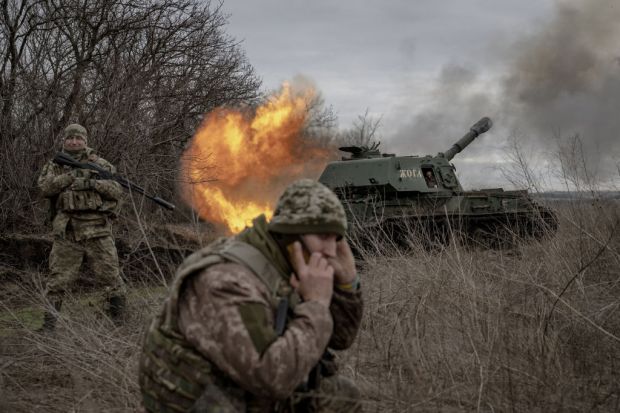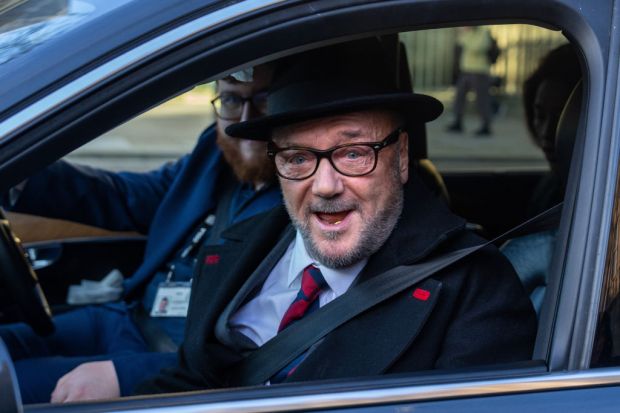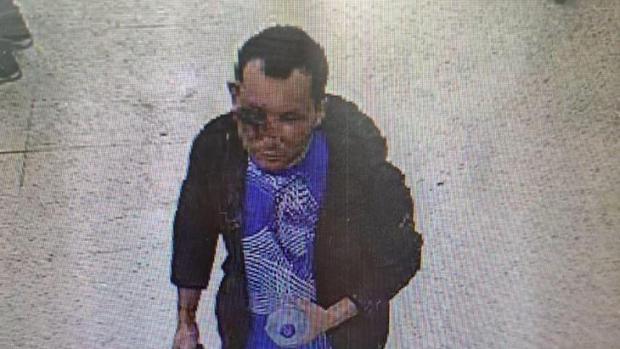Ukraine can still win its war against Russia – and it can win it in 2024. All it needs is a speedy supply of artillery rounds, more air defences, long-range missiles, and fourth-generation fighter jets. This list goes on, but the longer the West waits, the higher the cost of this war. The tragedy is that, for Ukraine’s partners, the cost grows in money; for Ukraine, it does so in human lives.
The horrors of Russian torture chambers will stay with him for life
It’s now been two years since Russia’s tanks invaded; for Ukrainians like me, who live abroad, we live in constant fear of terrible news from back home. You worry that, as soon as you turn your focus away, remembering that you have a life to live here in peaceful London, something dreadful will inevitably happen. You do as much as you can to help those back home: committing to every cause, making it to every interview, fundraising for each army unit where you know someone – even carrying heavy bags of decommissioned military supplies that suddenly await you somewhere on the outskirts of London as they might be helpful in Ukraine.
I’ve lost seven friends in the war since February 2022: university pals, former colleagues, teachers from school. Another friend of mine is missing. His daughter is desperately pleading on social media in an attempt to find him somewhere, somehow.
My brother, who shares his name with the now legendary General Zaluzhnyi – Valeriy – is on the front line. He lived in the United States for ten years and only moved back to Ukraine in 2017 to settle down, find a girl, and have a family. His daughter was born exactly one month prior to the second invasion. But his family life has been torn apart as he fights bravely for his country. His daughter, my beautiful two-year-old niece, is counting down the days until daddy returns home. She can only go to sleep after she hears a recording of his voice telling her that everything will be alright.
He has faced off with a Russian tank, and been forced to duck for cover armed only with a grenade after his British-made NLAW (an anti-tank weapon) malfunctioned at the last minute. As part of a specialised reconnaissance unit, he is the first one to go into liberated towns and cities. The horrors of Russian torture chambers will stay with him for life. So, too, will the look in the eyes of his fallen brothers in arms in the last moments of their lives. He lost four of his closest comrades last year, all on mines in the Serebriansky forest. We have cried many tears together over the phone, my brother and I. He feels he must stay strong and upbeat talking to his wife. But he tells me of the horrors he encounters daily: human remains, blood stains, teeth on the ground, mass graves in the woods. They have all penetrated my soul as much as his. He was part of the liberation of Lyman and Izum, and the retreat from Lysychansk. He is now on the northeastern flank, moving into the position to face the enemy on the second anniversary of the war over the weekend.
We keep bracing ourselves for whatever the future might hold. My brother is less enthusiastic about the prospect of victory than he was in August when I visited him in Ukraine, or in October when I went to see him on one of the training grounds in the north of England. He tells me about the disillusionment within the army. The lack of ammunition and weapons from the West – and the sense of abandonment, both external and internal, as well as the immeasurable loss of life witnessed on a daily basis – means that hope is waning for Ukraine’s heroes.
Meanwhile, Russians have learned from the Ukrainians their tactics of war and are using them against them. The mimicking of drone usage and uneven supplies of ammunition in favour of the Russians leaves little space for Ukraine’s famous ingenuity and courage.
Will the West help Ukraine win this war before the Ukrainians run out of their greatest asset: the will to live, to fight, to stand? Will there be enough gunpowder in Europe to rise up to the challenge and stand up, yet again, to the threat of tyranny? Or will the continent sleepwalk into the a bigger conflict? What do the bilateral security agreements with the UK, France, Germany, and now Denmark mean for Ukraine whose soldiers are dying on the battlefield every day? These are all the questions that, due to my profession running a think tank I am meant to be able to respond to; but, as a Ukrainian, I have few answers. The United States, while going through its existential crisis, still needs to realise that half measures only embolden dictators, and a moderate approach equals weakness in their eyes.
Marking the tenth anniversary of this war and the second year since the full-scale invasion, we must do everything we can to avoid the third one. Otherwise, we risk losing not just independent and free Ukraine, but Europe as we know it.
Got something to add? Join the discussion and comment below.
Get 10 issues for just $10
Subscribe to The Spectator Australia today for the next 10 magazine issues, plus full online access, for just $10.




















Comments
Don't miss out
Join the conversation with other Spectator Australia readers. Subscribe to leave a comment.
SUBSCRIBEAlready a subscriber? Log in